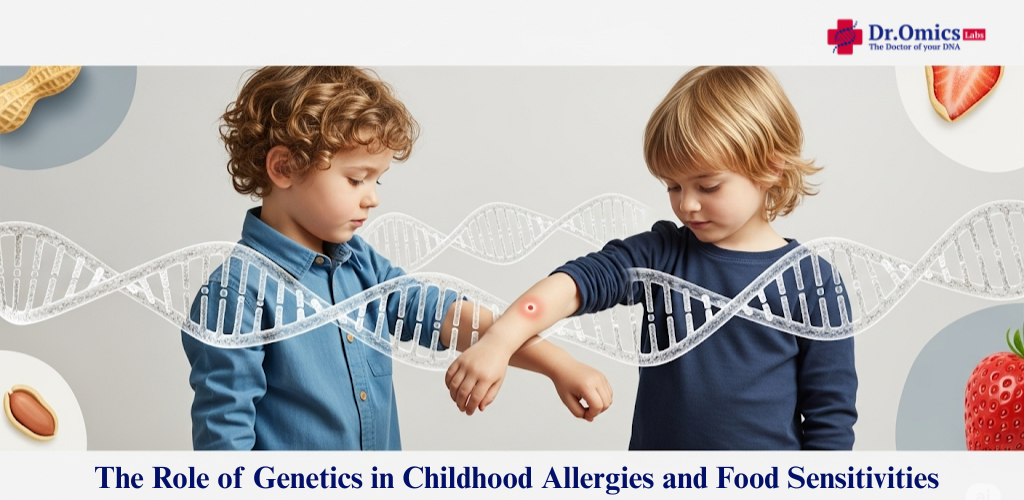Did you know your child’s genes may hold the key to understanding their allergies? Cutting-edge pediatric genetic testing is revolutionizing how we approach childhood allergies and food sensitivities. By examining DNA and childhood development, scientists are uncovering how our genetic blueprint influences immune responses from the earliest stages of life.
The Genetic Link to Childhood Allergies
Research shows that hereditary diseases in children play a significant role in allergy development:
- Children with one allergic parent have a 30–50% chance of developing allergies
- Those with two allergic parents face a 60–80% likelihood
- Specific gene variants affect how the immune system responds to common allergens
Newborn genetic screening programs are now identifying these risk factors at birth, allowing for early intervention strategies.
How Genetic Testing Helps Parents
- Early genetic diagnosis can reveal predispositions to:
- Peanut and tree nut allergies
- Dairy and egg sensitivities
- Environmental allergies like pollen or dust mites
- Test results help create personalized prevention plans:
- Gradual allergen introduction protocols
- Targeted probiotic supplementation
- Customized nutrition strategies
- Families gain peace of mind knowing their child’s specific risks
Beyond Allergies: Comprehensive Genetic Insights
Modern genetic health tests for kids examine multiple aspects of development:
- Nutrient absorption and metabolism genes
- Immune system function markers
- Detoxification pathway efficiency
This holistic approach helps address not just allergies, but overall wellness and development.
The Future of Pediatric Genetic Medicine
Exciting advances on the horizon include:
- Expanded newborn genetic screening panels for immune health
- AI-powered analysis of genetic risk factors
- Gene therapy approaches for severe allergic conditions
Should You Consider Testing for Your Child?
Pediatric genetic testing may be particularly valuable for:
- Families with history of allergies or autoimmune conditions
- Children experiencing unexplained reactions
- Parents wanting to optimize their child’s nutrition from an early age
Always consult with a pediatric genetic specialist to determine if testing is appropriate for your family.
Knowledge is power when it comes to your child’s health. Understanding their genetic predispositions allows you to make informed decisions about their care and potentially prevent serious allergic reactions before they occur.




